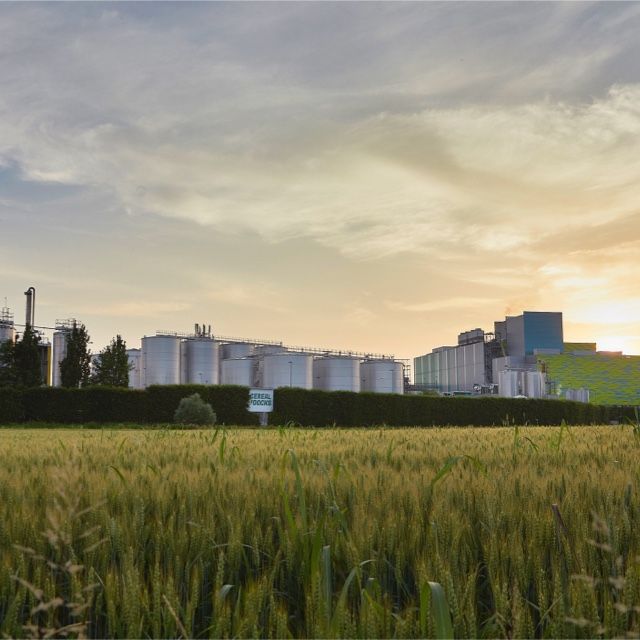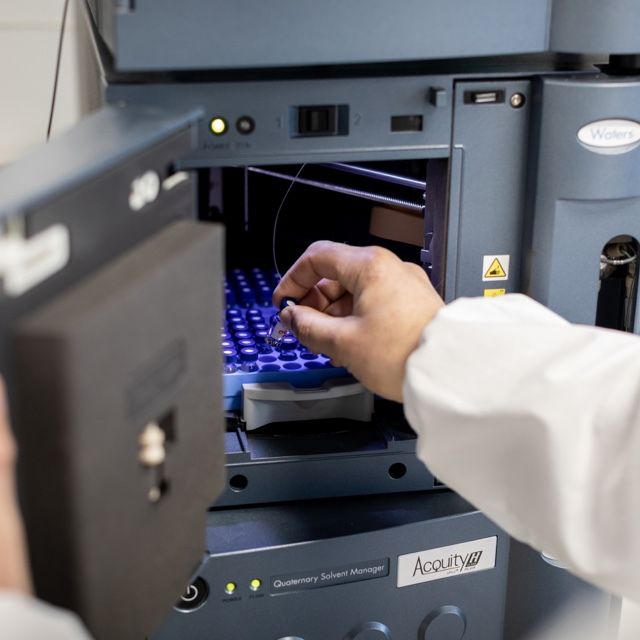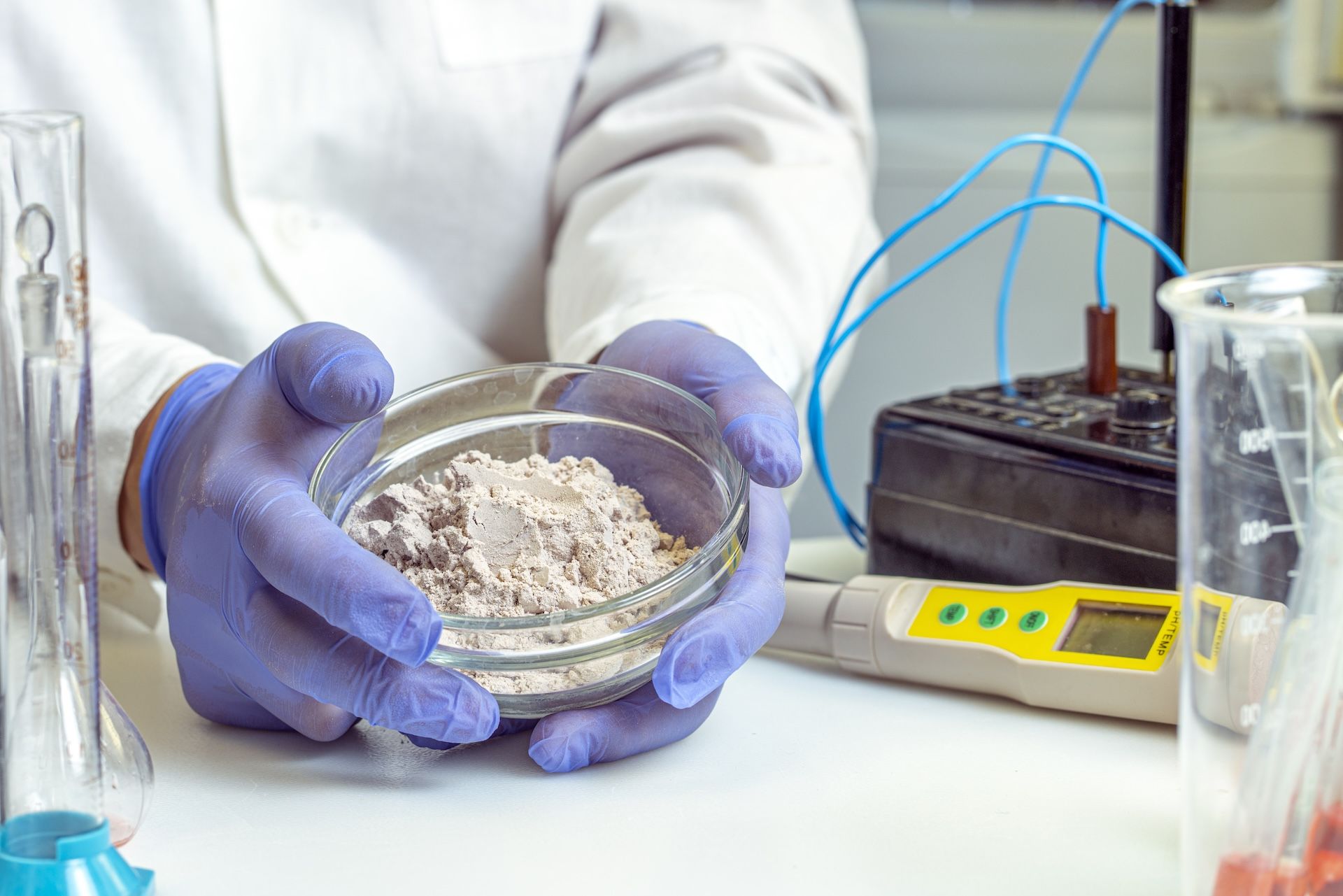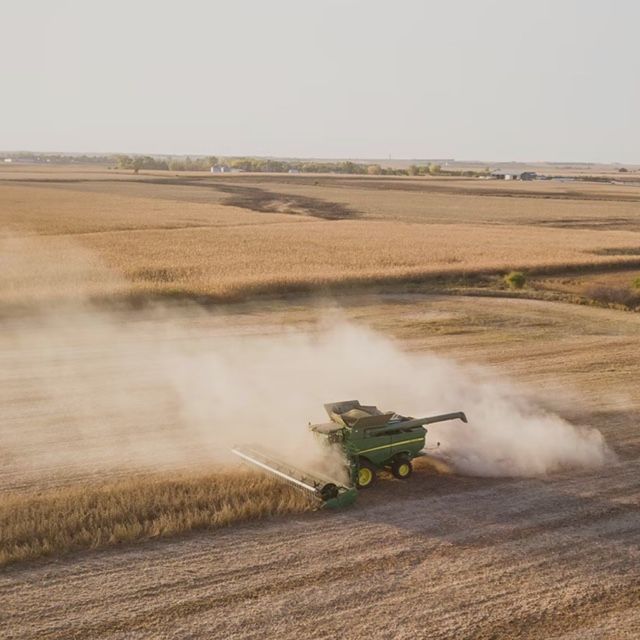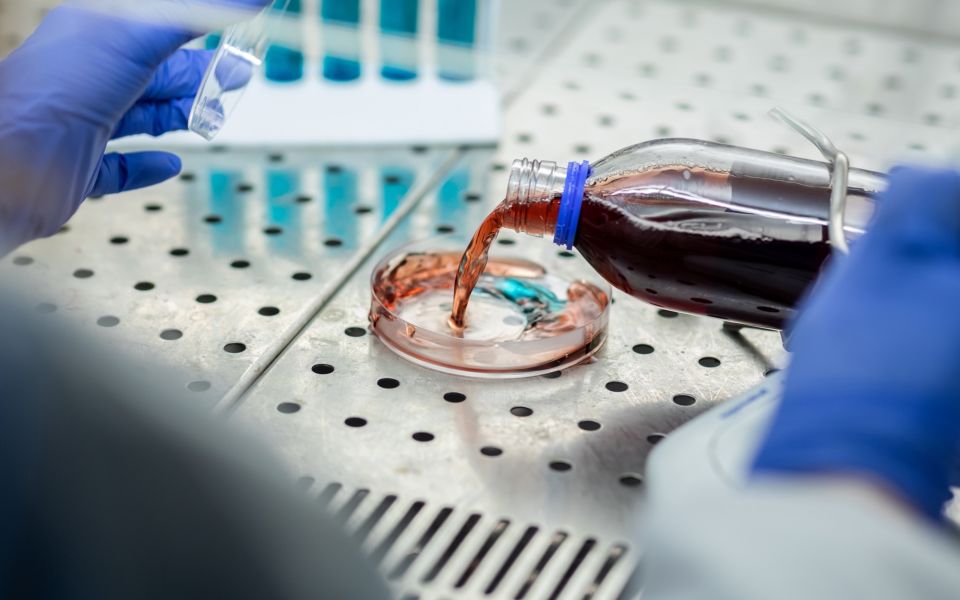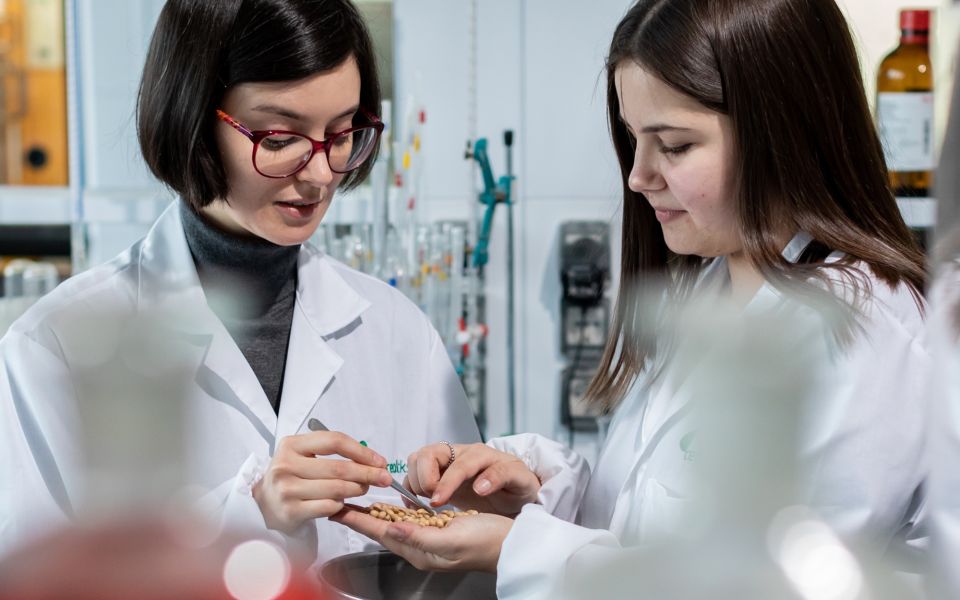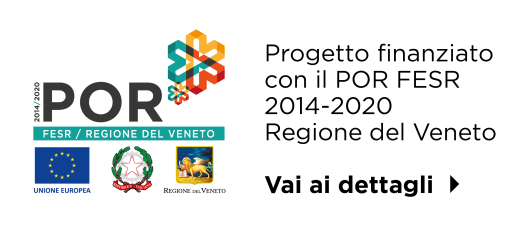- Home
- Food quality and safety
- Certifications
Certifications
The certifications acquired in the food safety field are of fundamental importance to guarantee the quality and safety of food products. They are issued by independent third party bodies and certify that a company respects certain standards and processes to prevent contamination and guarantee product traceability.
Certification of food safety and system
ISO 9001
ISO 9001 is an international standard for quality management systems (QMS), proving an organisation’s commitment to quality and continuous improvement. It can help increase customers’ trust in the products and services of the organisation. The organisations must be certified by third party auditors and must submit to periodical re-certifications to maintain their ISO 9001 certification.
FSSC 22000
FSSC 22000 is a globally recognised food safety management system; it covers all aspects of food safety, including risks for food safety, pre-requisite programs and the HACCP principles (Hazard Analysis and Critical Control Points). It is recognised by the Global Food Safety Initiative (GFSI) and is widely accepted by the food sector parties involved, including regulation agencies, suppliers and customers.
GMP+
GMP+ is a globally recognised food safety management system; it covers all aspects of food safety, with special attention for the production and transport of animal feed. GMP+ certification demonstrates an organisation’s commitment to satisfying rigorous food safety standards and provides a picture for managing risks linked to the production and transport of animal feed.
EFICS GTP
EFICS GTP is a global certification program for the transport of packaged food and feed products. It provides a full series of standards and requirements to guarantee the safe, hygienic transport of food and animal feed products, guaranteeing customers that their products are transported responsibly and professionally. EFICS GTP certification offers a competitive advantage for food and feed sector organisations and helps strengthen customer trust in products and services.
Non-GMO and traceability certifications
DTP 030
DTP 030 is a voluntary standard certifying the “NON GMO” requirement of food, feed products and animal origin by-products. With products intended for zootechnical feeding needs, the certification concerns the controls conducted by operators in order to guarantee respect for the 0.9% limit, considered the maximum limit technically inevitable and/or accidental in the zootechnical food preparation processes.
ISO 22005
ISO 22005 is an international standard for management of the procurement supply chain (SCM), providing a number of requirements for organisations to guarantee the traceability of agri-food products. If a health and safety non-conformity should occur, on the one hand, it enables tracing that point in the chain where the problem originated, on the other, to proceed, if needed, with the “targeted” withdrawal of the product.
DONAU SOIA
The Donau Soja standard was set up to promote and spread the cultivation, processing and commercialisation of sustainable quality soy, not modified genetically and of controlled origin from the Danube region. The goal is to develop and guarantee a sustainable supply of “NON GMO” protein in and from Europe. The standard guarantees the two essential Donau Soja characteristics: "European origin” and “no GMO", alongside further social, environmental and economic aspects.
PROTERRA
The ProTerra standard is based on the Basel Criteria for Responsible Soy Production, published in 2004. It has four main goals: promote good agricultural practices; guarantee the supply of ingredients produced sustainably, fully traceable and “NON GMO”; protect the environment and make sure workers and communities are treated with dignity and respect.
Europa Soia
The Europe Soya quality program was set up to promote and spread the cultivation, processing and commercialisation of sustainable quality soy, “NON GMO” and of controlled origin from Europe. The Europe Soya standard is based on ten Europe Soya principles based on the cultivation of soybeans. These principles cover the two essential characteristics of “European origin" and "exempt from GMO" of Europe Soya, together with other social, environmental and economic aspects.
VLOG
With VLOG certification one can demonstrate that the genetically modified organisms are not used in the entire chain (animal feed industry, production of milk and of dairy products). In order to be able to label products as "Ohne GenTechnik" or animal feed as "VLOG geprüft”, the corresponding products must be certified by the VLOG standard.
STANDARD FOODCHAIN ID NON-GMO
The global standard FoodChain ID Non-GMO is recognised as a point of reference for a “NON GMO” feed and food production system, as it applies a quality management system aimed at protecting identity. The program’s key components include risk assessments, traceability and sampling/tests to check compliance; the program is assessed every year for the standard requirements by the FoodChain ID certification.
Environmental sustainability certifications
DM 14.11.19
The inter-ministerial decree of 14 November 2019 regulates the product certification systems for the production of biofuels, bioliquids and biomethane. It describes how the national system functions, the provisions for economic operators involved in the production of biofuels or bioliquids, those of the certification bodies and of the accreditation body. In line with what is envisaged at European level, sustainability compliance for a biofuel is fundamental for access to incentive systems and to contribute to goals set for renewable sources.
2Bsvs
2Bsvs certification is a voluntary one, recognised at European level, intended for the energy market (biofuels, bioliquids, biogas and biomethane) that guarantees compliance with sustainability criteria set by the European Directive 2009/28/EC of bioliquids and biofuels. The standard envisages compliance with requirements checked: reduced GHG emissions, use of the mass balancing system, documented procedures to implement a control and traceability system for the sustainable product.
ISCC UE
ISCC (acronym for International Sustainability & Carbon Certification) is an internationally recognised third party certification linked to sustainability. The ISCC EU system refers to the European Directive EU 2009/28/EC (RED Directive) and its most recent review 2018/2001/EU, also known as RED II, which sets specific requirements for biofuel producers, with guaranteeing its sustainability as the final target.
Laboratory accreditation
ISO/CEI 17025
The international standard ISO/IEC 17025 establishes the requirements that a laboratory must meet to prove the technical competence of its personnel and availability of all the technical resources, in order to guarantee accurate, reliable data and results for tests, measurements and specific calibrations.
Organic certifications
BIO EU
The biological certification of the European Union makes it easier for consumers to identify organic products and helps farmers market them in the EU. The organic logo may only be used on products certified as organic by an authorised control body or authority. This means they have met rigorous conditions on how they must be produced, processed, transported and stored. The logo may only be used on products that contain at least 95% of organic ingredients and, moreover, satisfy further rigorous conditions for the remaining 5%.
OFDC
The OFDC organic certification standard is a voluntary one developed by the China Organic Food Development Center (OFDC), a public, non-profit organisation, specialised in the research, inspection and organic certification established by the Ministry for Environmental Protection (MEP). The OFDC standard is based on IFOAM basic standards that set the requirements for organic production, processing, and trading.
Environmental, social, economic sustainability certifications
Farm Sustainability Assessment (FSA)
Farm Sustainability Assessment, a Sustainable Agriculture Initiative tool to involve, assess and improve the sustainability practices at farm level. The mission of FSA, a standard developed by SAI Platform - Sustainable Agriculture Initiative Platform - is to develop and certify the use of sustainable farming practices, collaborating with all parties on the agro-food supply chain through control of 112 requirements for sustainable agriculture that cover the social, environmental, economic and management aspects.
RTRS
The voluntary RTRS (Round Table Responsible Soy) certification is based on high sustainability standards to guarantee that the soy, as both raw material and by-product, originates from an ecologically correct, socially responsible and economically sustainable process. RTRS certifies the accountability of soy productions, processes and trading at global level, excluding origins that are "sensitive and subject to deforestation".
DTP 112
The voluntary DTP 112 standard for sustainable cereals and oilseeds requires a supply chain approach that is from field to finished product and is the result of a process shared by farmers, pickers and processors to establish cultivation and processing techniques for the production of cereals and oilseeds (and their by-products) based on the best practices known; in order to guarantee a sustainable product based on the three fundamental sustainability pillars: environmental, economic, and social.
PROTERRA
The ProTerra standard is based on the Basel Criteria for Responsible Soy Production, published in 2004. It has four main goals: promote good agricultural practices; guarantee the supply of ingredients produced sustainably, fully traceable and “NON GMO”; protect the environment and make sure workers and communities are treated with dignity and respect.
ISCC PLUS
The voluntary ISCC PLUS - International Sustainability & Carbon Certification standard certifies the sustainable management of the food supply chain companies. The ISCC Plus Standard, in line with Community directives, checks compliance with human, labour and environmental sustainability rights, for protection of the eco-system, biodiversity and the reduction of greenhouse gas emissions, requirements recognised globally and increasingly more required of food companies.
Compliance with ethical-religious standard certifications
Kosher
Kosher certification is the kosher approval stamp by a rabbinic agency that certifies control of the product ingredients, the production system and effective production to guarantee that all ingredients, by-products, instruments and machines have no trace of non-kosher substances. The Kosher Certified symbol guarantees consumers that the effective product and its production adhere to all the Kosher law requirements.
Halal
Halal certification applies to the food, cosmetic and pharmaceutical sectors and certifies that a product was manufactured in full compliance with the provisions of Islamic Law, that it contains no “forbidden“ component and has in no way come into contact with any substance or items considered “impure”.
Continue your trip
Transform to sustain the future
Food quality and safety
Research & Innovation
2023 CEREAL DOCKS SPA Società Benefit - via dell'Innovazione 1 36043 Camisano Vicentino (VI)
REGISTRO IMPRESE DI VICENZA - CF/P.IVA 02218040240 – CODICE ISO IT02218040240 – R.E.A. VI 215209 – CAP.SOC. 10.000.000 EURO INT.VERS.- SOCIETÀ A UNICO SOCIO
REGISTRO IMPRESE DI VICENZA - CF/P.IVA 02218040240 – CODICE ISO IT02218040240 – R.E.A. VI 215209 – CAP.SOC. 10.000.000 EURO INT.VERS.- SOCIETÀ A UNICO SOCIO
